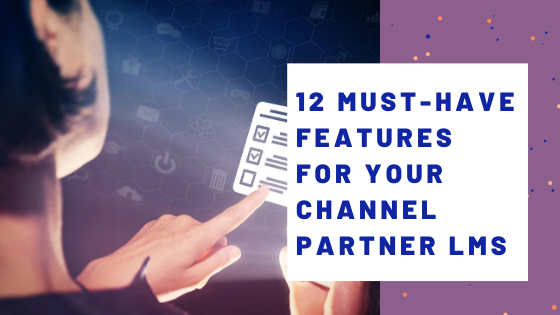Using Technology to Manage Your Sales Channels: The Tech Stack
Many manufacturers of products have both an internal sales team and use outside salespeople. Most often called Channel Partners these non-employee sales forces often come in the shape of distributors, manufacturers representatives, and resellers.
A manufacturer’s representative is most often selling many different products. Manufacturers must compete for channel partner attention and the way to get attention is through incentives and product knowledge training. There are several different platforms that can be used to manage the Channel Partner relationship. At the top of the TECH STACK is a platform called a Partner Relationship Management System (PRM). An example of a PRM is a platform called ImPartner. Often the manufacturers inside sales department uses a Customer Relationship Management (CRM) program like Salesforce or Microsoft Dynamics to manage leads and opportunities. But the top PRM’s do a lot more than just integrate with the CRM, they generally provide a plethora of features to help manage the Channel Partner Relationship. First and foremost is providing a branded sub platform for each sales channel. Here the manufacturer will present incentive programs and educational programs. Providing outside salespeople with product knowledge is most important so some manufacturers invest solely on a learning platform. Certifying that each salesperson knows the product via testing is an important feature. Some manufacturers also turn to a learning management system (LMS) for communicating with partners.
It helps if this learning platform is purposely built for managing and educating channel partners. Learning analyst John Leh has written extensively about the Channel Partner LMS, and calls it the extended LMS. John Leh is a big proponent of using a separate learning platform for distributors, resellers, franchisees, and other non-employees. He cautions against trying to use a system built for human resource compliance training of employees.
Here are his top reasons for implementing a Channel Partner LMS:
- Reduce travel costs involved with face to face training
- Certify product knowledge of your non-employees
- Decrease support calls
- Increase number of partners
- Increase sales and customer satisfaction
The Channel Partner LMS generally involves the feature to have branded sub sites pulling from one content library.
More about Partner Amp
PartnerAmp is a Learning System that is a part of a class of systems called external learning management systems. Usually resellers, franchises, dealers, distributors, retailers and agents are not employees of the manufacturer and operate independently. Some of the key features that PartnerAmp has includes
- Integration with other systems channel partner technology
- the customer relationship management system called Salesforce.
- the Partnership Relationship Management system Impartner
- with a salesforce application called Lead Smart
- Engagement promotion such as online Badges, Flash Cards, Leaderboards and personal adaptive learning
- Ease of posting all file types include a robust video engine
- Micro-Sites- ability to create unlimited sub-portals often called multi-tenancy
- Built in authoring tools that utilize templates for rapid content development and test generation
- Mobile responsiveness- looks great on mobile devices
- Analytics to visualize system data in easy to understand reports
Related Articles

Onboarding Your Channel Partners
Once you have your learning management system (LMS) in place and you’ve tested it with your other programs (such as the marketing, customer relationship or financial systems), it’s time to get your channel partners to use the LMS for training. In this article, you’ll...

12 Must-have Features for Your Channel Partner LMS
There are a lot of moving parts in building a successful channel partner program: Understanding your market and how people and companies prefer to handle their purchases in your segment; Laying out your sales process and researching how it compares to potential...

12 Must-have Features for Your Channel Partner LMS
There are a lot of moving parts in building a successful channel partner program: Understanding your market and how people and companies prefer to handle their purchases in your segment; Laying out your sales process and researching how it compares to potential...
